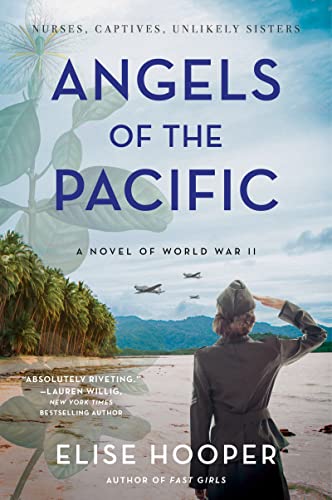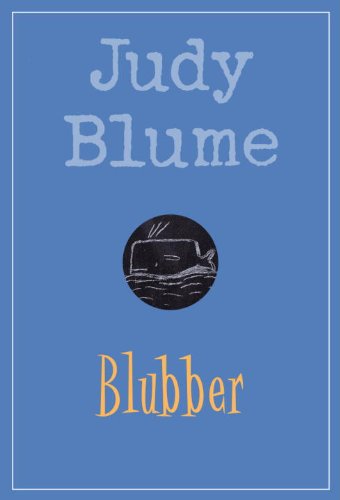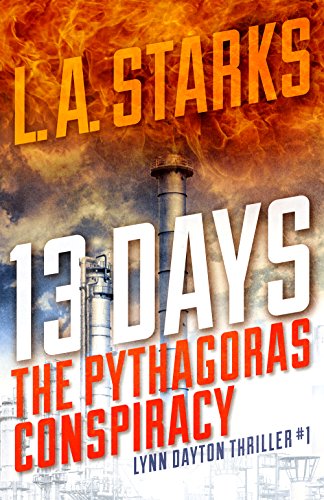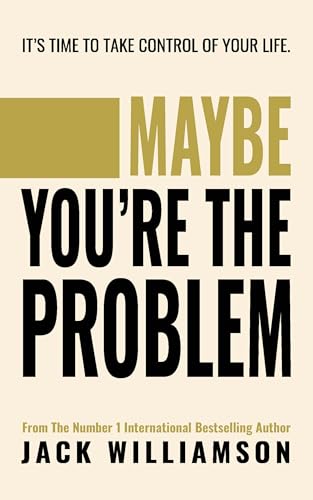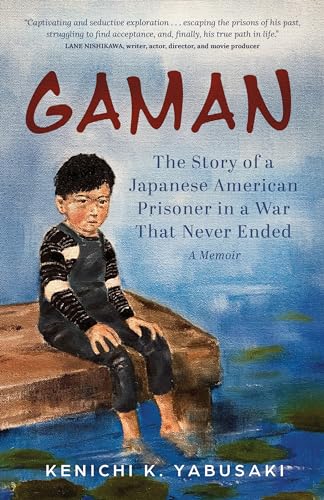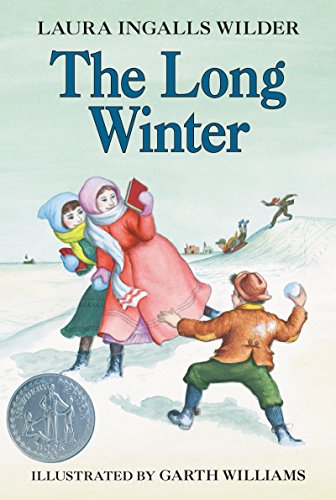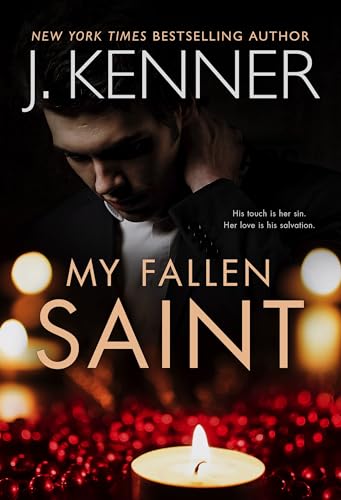On Friday we announced that Christopher Allan Poe‘s The Portal is our Thriller of the Week and the sponsor of thousands of great bargains in the thriller, mystery, and suspense categories: over 200 free titles, over 600 quality 99-centers, and thousands more that you can read for free through the Kindle Lending Library if you have Amazon Prime!
Now we’re back to offer our weekly free Thriller excerpt:
The Portal
by Christopher Allan Poe
She had nowhere left to hide…
Vivian Carmichael has been hiding in the San Bernardino Mountains for more than a year. Far from cell towers and video cameras, she thinks she’s finally found a safe place to raise her four-year old son Cody. Until the night he crawls into her bed and whispers two words that fill her with terror.
“Daddy’s home.”
Now running for her life, she’s horrified to learn that her estranged husband Jarod is not quite human anymore. Can she unravel the mystery of her family’s dark secret before he can steal her son, claiming her as his next victim?
And here, for your reading pleasure, is our free excerpt:
I
The Long Night
1
| V |
ivian woke to an ocean of darkness that filled her lungs to capacity. Frantically, she groped her nightstand. Something banged on the floor. Where was her inhaler? There. She puffed and puffed again, but her short breaths could only take in so much.
Her chest loosened. Exhausted, she lay back. Underneath the splash of raindrops outside, Cody’s muffled voice came from the hallway. Her bedroom door creaked open, and a sliver of light blinded her.
“Mommy?” His silhouette clung to the doorknob with one hand. The other dragged Mister Vincent on the floor behind him. “Are you okay?”
“Everything’s fine.” She lifted her blanket. “Come to bed.”
Seconds later, he cuddled against her chest. She breathed deep the scent of baby shampoo. God she needed to be more careful. Just one slip and he would be alone in this world. Then what? Some chemical substitute to fill the void? Crime? Jesus, she would never let it come to that.
“Mommy,” he whispered.
“Yes, sweetie.”
“Mister Vincent is sorry.”
She closed her eyes and prayed for sleep. Although Mister Vincent painted the kitchen walls in shades of peanut butter yesterday, whatever mess lay beyond her door could wait until morning. “It’s fine.”
“He didn’t mean to let him in.”
She almost sat up to check. No, everything was locked. The Trenton Security System was armed, and the dead bolts were three feet above the door handles. Well beyond Mister Vincent’s reach.
“It was just a bad dream, baby,” she said. “Not real.”
He sat up on his knees and put his hands on her cheeks.
“Mommy,” he said.
“Go to sleep.”
“I have to tell you something, but I promised not to say it out loud.”
“Fine,” she said. “But then you’ll lie down.”
He nodded, leaned over her, and whispered in her ear, “Daddy’s home.”
She jumped up and turned on the light. It crashed to the floor. Her car keys! She needed them. They had to get out.
“Where is he? Where did you see Daddy?”
“Ouch,” he cried.
She looked down and realized how hard she’d grabbed his shoulders.
“I’m sorry, baby,” she said. “I didn’t mean it.” He lowered his head. “This is really important,” she continued. “Like when Mommy needs her inhaler.” He nodded. “I need you to tell the truth. Where did you see Daddy?”
“Walking in the trees.”
She pulled up the mini blinds and wiped away the condensation on the window with her hand. Their van was parked next to the forest, at least thirty yards from the cabin. She put on her shoes and grabbed her keys.
“Come here,” she said.
He ran in front of the toppled lamp. Shadows raced across the walls. She leaned down, and he wrapped his arms around her neck. In the hallway, her knees nearly buckled. The front door swung back and forth in the wind. Leaves blew through the living room into the hall.
Cody clutched his bear. “He didn’t mean to let him in.”
“I know he didn’t, sweetheart. Don’t worry. We’ll make sure Mister Vincent stays safe.” She hugged Cody’s head against her shoulder. “We all need to be very quiet now.”
Carefully, she stepped over the creaky second floorboard. Slowly. Don’t panic. The power in the cabin went out. Shit. Following the meager light from the front door, she picked up her pace.
“I can’t see.” Cody’s voice seemed to thunder.
“Shhh, you have to stay quiet.”
The basement door directly behind her opened and clicked shut.
“Hello, Vivian.” Jarod’s voice froze her in place. His footsteps thumped close. Breath smothered the nape of her neck. “‘Till death do us part. You do remember, don’t you?”
She steadied her legs. Cody needed her to be strong.
“Honor and obey, too.” Her joke, their joke failed to produce any laugh. He just kept breathing, heavy and slow in the darkness.
“I told you it was an accident,” he mumbled, as if something filled his mouth.
“Cody almost died, you son of a bitch.”
“You stole my fucking son,” he shouted.
She bolted down the hallway. In her wake, his footsteps shook the cabin. She reached the front door, grabbed the handle, and slammed it shut behind her. A thud rocked the house. He must have smashed into it.
She almost continued, but stopped. He’d run three miles a day when they were married. Every single day. And she was carrying Cody. He could barrel them down within seconds.
She fumbled with her keys and locked the top bolt. Last month, she’d installed the dual key dead bolts to keep Cody from opening the door. Fat lot of good that did, but now they had a use far greater. There was no turn latch on the inside. Only a keyhole. And the bars on the windows meant that Jarod was now locked inside.
The door rattled. A thunk rumbled through the mountains. She took off for the car. Above, the storm clouds broke. Flashes of lightning exposed his Humvee parked off the driveway. They were more than an hour from any town. Visions of their capsized minivan, forced from the road by the military vehicle, filled her head.
Thwack. The repetitive cracking gave away Jarod’s position as she raced to the Humvee. Inside the left wheel well, she found Jarod’s magnetic Hide-A-Key. Thank god some things never changed. She unlocked the gigantic door and lifted Cody into the backseat.
“Put your seat belt on,” she said.
“I’m sorry,” he cried.
“Now.”
She opened the driver’s door and climbed into the vehicle. Switches and panel readouts sat all around her. Could she even drive this stupid thing? Where was the ignition? There. She turned the key. The engine roared.
“Mommy,” Cody shouted.
Something snapped the glass. An explosion of nuggets sprayed her face. Jarod reached in and grabbed her sweater. She screamed. Broken and jagged, some fused together, his teeth dripped saliva.
The corners of his lips twisted as he shouted, “He’s mine.”
She punched the accelerator. Mud puddles sprayed over the windshield, blurring her view. Running alongside, Jarod yanked the steering wheel. The Humvee lunged toward a tree trunk and sideswiped it.
His shriek, guttural and inhuman, echoed through the cab. She slammed on the brakes to regain control. Something brushed her leg. His severed hand twitched in her lap. Forcing back her nausea, she slapped the thing onto the passenger floorboard and punched the gas.
At the end of the driveway, she turned left. Where could they go? Erika’s house? No. If Jarod had found her here, he might have people waiting for her there.
For the last year, she’d planned for this, and none of it mattered. Along with their clothes and cash, she’d also left every inhaler behind as well.
In the backseat, Cody sobbed.
“It’s okay, sweetie.” She reached back to hold his hand but found only a toe. “It’s over. We’re safe now.”
They could get out of this if she could just get down the mountain. Tammy probably still lived in Los Reyes. That was only a two-hour drive. They could still get out of this.
A blue dashboard light knocked back her hope as she sped around the final bend of Chesterfield Road. She closed her eyes and prayed over the sound of Cody’s sobs. The gas gauge flashed empty.
2
| T |
hrough the shattered window, mist, laced with the scent of pine, sprayed Vivian’s face. Though the Humvee ate both lanes of traffic, and though speed would burn their fuel faster, she pressed the accelerator. The initial lead would count more.
“Where are we going?” The tremor in Cody’s voice tore at her heart.
“Everything’s fine now. We’re going to see Aunt Tammy.”
She checked her rear view mirror. So far nothing, but she couldn’t shake Jarod’s face from her mind. Something had deformed him. Those teeth. No, she must have seen it wrong. Some trick of the light or, more likely, her fear running wild.
In the backseat, Cody stared through the side window. He scrunched his hand on his knee repeatedly.
“Let’s play a game,” she said, not just for him. More than ever, she needed to hear his voice. “I spy the letter T.”
“What?” He sounded distant.
“The letter T.”
He finally turned from the window. “Tree.”
“You always get me.”
“I spy the letter M,” he said quietly.
Although M was always Mister Vincent, she guessed, “Mouth.” He shook his head. “Money?” She reached back and tickled his knee. “Where did you get money from? Did you rob a bank?”
In the rear view mirror, she saw him smile. At least on the surface, he seemed oblivious to Daddy’s hand thumping the floorboard around every turn.
A blue and red glow filled the cab. A quick look back showed a police car’s flashing lights.
“Damn,” she said.
“Soap.”
Jarod couldn’t have called the police. The cabin didn’t have a landline. And there weren’t any neighbors for seven miles. Nor any cell towers until Mercer. Maybe the cop just needed to get around her. She slowed onto the shoulder of the road. His siren wailed.
“Shit,” she said.
“Mommy.”
“I promise I’ll eat the whole bar when we get down the mountain. Now, I need you to be quiet.”
To avoid Jarod coming up on them, she pulled onto a dirt road. Branches clawed and scratched at the tank-like vehicle. Gravel popped underneath the tires. They reached a circular clearing with metal fire pits surrounding the perimeter, no campers. She stopped and took a deep breath. If this officer ran her license, they’d add grand-theft-auto to her kidnapping charges.
She pulled down the visor and freaked. Her hair wisped every direction. Blood spattered her clothing. Quickly, she wiped her face and tied her hair in a knot. On the massive center console, she found his sport jacket. Jarod’s musky cologne made her skin crawl as she put it on.
A spotlight drenched the cab of the Humvee, followed by approaching footsteps.
“License, registration, and proof of insurance.” The officer’s cold tone made her uneasy. She held up her hand to block his flashlight and realized just how far from civilization they were.
“What’s the problem?” she asked.
“Do you know how fast you were going?”
“Maybe forty,” she said.
They’d only driven fifteen miles. Too far to catch on foot, even for Jarod. But what if he could hotwire the minivan? She should’ve slashed its tires.
The officer lowered his light. This wasn’t good. His crew cut and chiseled features looked like he came from a long line of ball busters.
“License and proof of insurance,” he repeated firmly.
“It’s around here somewhere.” That sounded dumb. How many times had he heard those words? She glanced at the center console and panicked. “I’m sorry.” Carefully, she pushed a gun back, away from the officer’s field of view. “I must have left my purse at home.”
Jarod. That bastard had brought a gun to the house where Cody slept.
“Have you had anything to drink tonight?” the officer asked.
“Excuse me?” She caught herself. With Cody in the car, she refused to drive under the influence of mouthwash. Still, losing her temper wasn’t going to help. “No. Nothing to drink.”
“Please step out of the vehicle.”
If she did, he would see her splattered like a slasher victim. Then he’d find the hand.
“Whatever I did, can you please let me off with a warning? Just this once.”
“The side of your vehicle looks like it was buffed with a chainsaw. Broken glass is everywhere. You have no license, registration, or side mirror for that matter. And your son is in the car with you.”
“So is that a no?” She immediately regretted her tone, but the police always brought out the worst in her.
The jerk didn’t respond. He just stared at her.
“If you smell my breath,” she said. “Will you be able to tell that I’m sober?”
“A field sobriety test encompasses more than alcohol. Now get out, or I will remove you.”
“My driving was bad because we’re almost out of gas and I was trying to coast. And I didn’t want to mention it, but the reason we’re heading to town at his hour is for Midol. I’m having cramps.”
His eyes became twitchy. He shifted from foot to foot. Men. Lies poured from their mouths without the slightest remorse. They could rape the earth and butcher children, but tell them it was that time of the month, and they fidgeted worse than Billy Graham at an orgy.
“What about your other gas tank?” he asked. She could feel his relief at the change of subject. Good. She had him on the ropes.
Wait…
“What did you say?” she asked. “Other gas tank?”
“This isn’t your car?”
“It’s my father’s.”
“Unlike other civilian models.” His voice carried an air of disdain. “The Humvee comes standard equipped for all combat situations. Hit that switch on the left.”
She searched the dashboard and flipped the button. The gas gauge slowly filled.
“God, I could kiss you,” she said.
“That’s nice of you, but I still need you to step out of the vehicle.”
There weren’t any more excuses. He would take her to the station. Her fingerprints would show that she was wanted, and Jarod would make sure they locked her away forever. A lifetime without Cody. Forcing back her tears, she knew what had to be done.
“I just remembered where the registration is.” She reached over, grabbed the gun, and pointed it at his head. He jumped back and went for his weapon. “Don’t even think it.”
“Mommy.” Cody sounded concerned.
“We’re just playing cops and robbers,” she said without turning back. Then she opened the car door. “Cuff yourself to that campfire grate.”
“Don’t do anything you’re going to regret,” the officer said.
“Any minute now.” She hushed her voice. “My ex-husband will come down that mountain. He is going to steal my son and kill me. Don’t think for one second that I won’t shoot you if I have to.”
“Whatever the problem is, we can work it out.”
Though he held one hand forward, the other rested on his holstered firearm. She knew he was working up the guts to call her bluff.
“Put that gun on the ground and kick it to me,” she said. “Or I will shoot you in your stomach twice and then sleep like a baby tonight.” She shoved the gun toward him and shouted, “Now.”
“Okay.” He held both hands forward.
When the gun was at her feet, she said, “Now chain yourself to the grate.”
“If your husband is really after you like you say.” He cinched the cuff around his wrist. “It’s smarter to let us help.”
“Like you helped us before? Thanks for the concern, but he owns you.”
“I don’t even know your damn husband.”
“Maybe not you, but certainly the people above you,” she said. “Just cuff yourself.”
“You’re making a mistake.”
Once she was positive he was restrained, she opened the car door and got inside. Through the missing window, she said, “When we reach the bottom of the mountain, we’ll call somebody to pick you up.”
Vivian sped off, terrified of this new world she inhabited—where the two guns in her lap made her feel safer than none at all.
At the main road, she stopped. What was that? Even over the rumble of the engine, she heard a clicking noise from the back. Great. Now, the car was breaking down. What else could go wrong tonight? Again, click click. That wasn’t the car. Click. It was coming from inside the cab. Right behind Cody.
Jarod couldn’t have made it this far. Or could he? In the confusion with that cop, she hadn’t been able to watch the vehicle the entire time. She opened the door and got out. Then she crouched low and crept to the back bumper. With her gun ready, she pulled open the rear hatch.
It was empty. No, there was that noise again. A chill raced up her spine as she saw it. Jarod’s hand. Mangled tendons and shattered bone. Inch-long hooked talons extended from where the fingernails should have been. But even that couldn’t compare with that horrible click of bony claws against the wheel well as the hand twitched. The thing was still moving.
3
| V |
ivian parked at the back of the K Street cul-de-sac, just past Tammy’s trailer. Above, the only working streetlamp flickered and throbbed. Three houses down, a group of black-booted peckerwoods hovered around a truck on blocks. Spray paint cans hissed from their direction.
Perfect. Five minutes, and already her lungs felt tight, strangled in barbed wire and oil-soaked dirt. She had promised herself that night to never come back, and now she’d brought Cody here.
Still, none of that mattered. They had bigger problems. What had happened to Jarod? His face? She tried to push the image away, but those claws. He’d been dangerous before. Now he wasn’t even human.
Worse yet, if he could find them at the cabin, no place would be safe. Especially Erika’s house. They needed to leave the country. That meant retrieving the cash she’d stashed. No way she could attempt it with Cody in tow. So suck it up, Vivian. Even at three AM without a courtesy phone call, big sis was her best option.
“It’s okay,” she whispered to Cody, who stirred as she pulled him from the backseat. He didn’t wake. Then she grabbed the ice chest from the front seat.
All right, maybe storing Jarod’s disgusting, twitching claw in a beer cooler wasn’t too safe. She packed it tight with towels though, and the chest was wrapped in duct tape, too. That counted for something. Besides, it was proof that she wasn’t crazy. Maybe, it could be her chance to come out of hiding. Sole custody even. She didn’t dare think it. Hope was a useless emotion, reserved for gamblers throwing away their money. She didn’t have that luxury. In any case, the claw wouldn’t leave her sight.
Tammy’s gate almost fell from its hinge as Vivian opened it. She walked to the front door and knocked. Just feet away, the neighbor’s pit bull chomped and rattled a chain link fence. She rang the bell. Please let this be the right decision. Through the rusted screen, she saw the door open.
“Knock it off.”
Vivian recognized her sister’s voice.
“Sorry, I didn’t mean to—”
“Not you.” The porch light turned on and the screen creaked open. “The damn dog.”
Vivian’s knees weakened. That brick-colored hair pulled into a bun. Her piercing green eyes. For a second, she thought she was staring at her mother.
“You look like hell,” Tammy said. She even sounded like their mother. Had this been a mistake?
“I’m sorry if we woke you,” Vivian said.
“Well I don’t sleep in my work clothes.”
Looking down at the Astro Lounge insignia on Tammy’s jacket, Vivian covered her embarrassment with a cough. Tammy couldn’t have been one of the dancers. A bartender? Maybe, but judging from her bulk, she was more likely a bouncer.
“It’s been awhile.” Tammy motioned to Cody, who slept soundly. “Yours?”
She nodded. “This is Cody.”
The skinheads behind them began shouting.
“Well,” Tammy said. “You might as well come in before Anthony and his boys start humping your leg.”
As she walked inside, the scent of beef and cigarettes tightened her chest even more. This wasn’t asthma though. A polluted flood of memories made her nervous.
She laid Cody on a couch in the unlit living room and covered him with an afghan. In the kitchen, she found Tammy sitting at a Formica table. A hanging light swayed as she poured two shots of Wild Turkey.
“None for me,” Vivian said.
“Who said anything about you?” She slammed one of the shots. The idea of leaving Cody here, even for just a few hours, seemed crazier by the minute. But with no money for food, gas, or a motel, they were out of options.
“What’s in the chest?” Tammy asked.
“Food.”
“And the duct tape is for what, freshness?”
“It wouldn’t stay shut.” She wished she had a chain and padlock for the thing.
Tammy eyed her. Then she took a drag from her cigarette. “Well, it better not be drugs. You know I won’t expose my family to that.”
“It’s not.” Vivian felt a little ashamed because two handguns and a severed claw were far worse than any narcotic on earth. “Did you say, family?”
Tammy motioned to a white cat walking across the stove. “That’s Sinead.” She scratched another tabby napping in a chair next to her. “I took in Bones after Mom died.” She paused. “We missed you at the funeral.”
“I know,” she said. “I really wanted to go.”
“So why didn’t you?”
This conversation couldn’t lead anywhere good. Every wasted moment only played in Jarod’s favor, so she said, “Tammy, I need your help.”
“You don’t waste time.”
“I’m sorry, but we’re in trouble.” Vivian sat down at the table. “I need to borrow your car and some money for gas.”
“How did I know this was coming?”
“You know I hate to ask, but—”
“I’m your last hope.”
God, she hated when Tammy did this. Taunted and teased. Dangled the prize just out of her reach.
“If you could watch Cody,” she said. “I’ll back in two hours, tops.”
“Let me guess, the mob is after you.”
“Tammy, please. This is serious.”
“The secret police?” Her laugh echoed in the kitchen. Furious, Vivian didn’t dare speak. Tammy put out her cigarette in the tray. “I’ll tell you what’s going to happen. You’re going to disappear and dump your brat on me.”
Vivian stood up so fast, that her chair nearly knocked over. “Don’t ever speak about my son like that.”
“Fair enough, as long as you tell me why.”
“What?” Vivian asked.
“After all this time. You show up at my doorstep, begging.”
“Begging?” She couldn’t believe what she was hearing. “How many times have I bailed you out?”
“What? Ten years ago? You must be joking.”
“I just need you to watch Cody for a few hours. I can even pay you when I’m done.”
“Oh this is good.” Tammy poured herself a new shot. “Tell you what. I’ll do it if you give me the real reason you’re here. Why me?”
“Because—”
“Why now? And don’t give me this sisterhood bullshit.”
“Because I never told Jarod about you,” she snapped. “He doesn’t know where to find us here.”
The sarcastic smile left Tammy’s face. Silence filled the kitchen. The kind that only their mother had been able to create.
“Tammy, listen.”
“No, it makes sense. You always were ashamed of us.” She began petting Bones. “Thought you were so much better. And maybe you were. You got his looks and her brains.”
“I don’t know why I didn’t tell him.”
“I get it,” Tammy said. “But what I can’t figure is with all of that.” She waved her hands as if demonstrating a door prize. “Why you couldn’t resist stealing Mom’s boyfriend.”
“Excuse me?”
“Kenny wasn’t much, but he was all she had.”
“Exactly what do you think you walked in on?”
“Jesus, Vivianna, I’m not a fool.”
There it was. The name her mother had called her. Suddenly her anger felt like a swarm of hornets in her stomach.
“I want to know what you think you saw,” Vivian said.
“Let’s just drop it.”
Oh, it was far too late. “You want to know why I didn’t come to the funeral. Why I ran away and never told the man I married who I really was?”
“Sorry I brought it up,” Tammy said.
“That drunk piece of shit Kenny tried to rape me. And you know what our mother said to me? She told me not to ruin it for her. That I had already ruined everything else.”
“Didn’t you?”
“Are you insane? I was sixteen.” The tears in her eyes didn’t ease her rage. They magnified it. “That’s why I ran away. And I didn’t go to her funeral because I was afraid. Terrified that the only reason I cried was because I would never get the chance to tell that bitch what I really thought of her.”
Tammy just sat with a stupid sneer, rubbing her finger across the rim of her shot glass.
Something brushed Vivian’s hand. She glanced down to find Cody. He didn’t speak. Instead, he leaned his head against her leg, with a look of concern that quieted her anger instantly. Again, silence filled the trailer.
Finally, she wiped her eyes. “I’ve spent too many years blaming myself.” She picked up Cody in one arm and grabbed the cooler. “I don’t know what the hell I was thinking. I wouldn’t leave my son with a cockroach like you for a second.”
She hurried back to the front door.
“Don’t ever come back here again you—”
Vivian slammed the door and cut her off. She breathed deep the smoggy air. Somehow, she felt better. Maybe it had been bottled up for too long. Or maybe, the curse of genetics had provided her with one final opportunity to tell her mother off. Either way, she did feel better. Cleansed.
She was crossing the street when she heard the voices. Three skinheads surrounded the Humvee.
“Well,” the short one with beady eyes said. “Look who’s back.”
She held Cody tight. After the night she’d had, these bastards had no clue of what they were getting themselves into.
As Vivian left, Tammy thought of a million things that she should’ve said. At least the slut was gone. Good riddance. Take her lies with her. She poured another shot and slammed it down. Wild Turkey usually calmed her nerves after work, but not tonight.
He doesn’t know where to find us here, Vivian had said. There could only be one reason why she came here when she was in trouble and not the police station. Only one reason.
“I’ll show you a fucking cockroach.” She picked up the phone and dialed nine-one-one.
Continued….
Click on the title below to download the entire book and keep reading
Christopher Allan Poe’s The Portal>>>>



